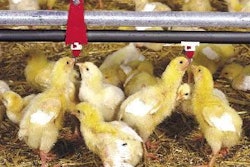High and volatile agricultural commodity prices are likely to prevail for the rest of this year and into 2012, according to the latest analysis in the Food and Agriculture Organization’s Food Outlook.
The report cites a sharp rundown on inventories and only modest overall production increases for the majority of crops as reasons for continuing strong prices.
The next few months will be critical in determining how the major crops will fare this year, the report notes. Although prospects are encouraging in some countries, such as the Russian Federation and Ukraine, weather conditions featuring too little or too much rain could hamper maize and wheat yields in Europe and North America.
Wheat
Global wheat output is expected to be 3.2% up from last year’s reduced crop, mostly reflecting improved yields in the Russian Federation.
World production of coarse grains is set to climb by 3.9%, exceeding the record set in 2008. Most of the increase is expected from the Russian Federation and the other members of the Commonwealth of Independent States.
World cereal stocks at the close of the crop season in 2012 are put at 494 million metric tons, up only 2% from sharply reduced opening levels.
Record meat prices
Regarding meat, high feed prices, disease outbreaks and depleted animal inventories are forecast to limit the expansion of global meat production in 294 million mt in 2011 – only 1% more than in 2010.
The international meat price index hit a new record at 183 points in May 2011 and a combination of strong import demand and limited export availability pointed to a further firming of prices in the next few months.
Food import bill
In international food trade, the global food import bill is expected to reach a new record of $1.29 trillion in 2011 – 21% more than in 2010. Low Income Food Deficit Countries and Least Developed Countries would be the hardest hit since they would be likely to have to spend respectively 27% and 30% more on food imports than last year.

















